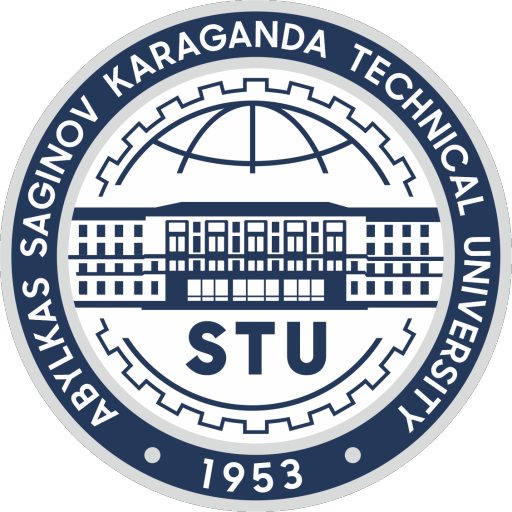GOSO. Graduate education. Postdoctoral Training
Requirements to the content of education.
Structure of doctoral education program has two equal components: education and research, which define the content of education, and reflects their ratio, measured and reported.
Doctoral education program includes: 1) theoretical training, which includes studies of cycle basic and majors;
2) practical training for doctoral students: different kinds of professional practices, research fellowships;
3) Research (experimental study) work, including completion of the doctoral thesis;
4) the intermediate and final evaluation.
Implementing educational programmes based on teaching methods and disciplines. The form, structure and design of teaching-methodical complexes of specialities and disciplines are defined by education alone.
Accounting for the complexity of all kinds of works is the earned amount of material and is measured in credits, which are units of work, doctoral students and teachers needed to achieve specific learning outcomes. The accumulative credit system, taking into account credits, mastered at previous levels.
At the “entrance” of the doctoral student must have all the prerequisites necessary to master the professional curriculum of doctoral studies. The list of necessary TRANS-props is an institution of higher education.
In the absence of the necessary TRANS-props there allowed them to master on a fee basis. In this case study in doctorate begins after full development doctoral student TRANS-props.
The results of scientific research of the doctoral student shall be published in a scientific, analytical and scientific publications in accordance with the rules of awarding academic degrees and academic titles, approved by order of the Minister of education and science of the Republic of Kazakhstan dated March 31, 2011, no. 127.
Requirements for scientific-research work of the trainee program of doctor of philosophy (PhD): research of the doctoral student must: 1) correspond to the main area of specialty, which is protected by the doctoral thesis;
2) be relevant, scientific novelty and practical importance;
3) based on the latest theoretical, methodological and technological achievements of science and practice;
4) based on modern methods of processing and interpretation of data using computer technologies;
5) performed using modern methods of research;
6) contain research (policy, practical) protected topics.
Requirements for experimental and research trainee program doctor profile: experimental research of the doctoral student must: 1) correspond to the main area of specialty, which is protected by the doctoral thesis;
2) be relevant, scientific novelty and practical importance;
3) be based on modern science, technology and production and contain specific recommendations, decisions of administrative problems of complex, cross-functional nature;
4) executed with the use of advanced information technologies;
5) contain experimental research (policy, practical) protected topics.
The results of the research/experimental research work at the end of each period of their passage drawn doctoral student in the form of a summary.
In the framework of RD and D (ÈIRD) the individual work plan shall be provided for compulsory overseas scientific training.
The final outcome of the research/experimental research for doctoral students is a doctoral dissertation.
Doctoral thesis is based on its relevance, not later than two months after receiving the doctorate. The direction of research, as a rule, should be linked to national priorities or public programs or programs of fundamental and applied research.
The main results of the doctoral thesis shall be published in accordance with paragraph 27 of GOSO.
The general competence of doctoral studies: 1) have an idea: the main stages of development and change of paradigms in the evolution of science;
on the subject, ideological and methodological specificity of (social, humanitarian, economic) Sciences;
about scientific schools of the relevant industry knowledge, theoretical and practical developments;
on the scientific concepts of the world and the Kazakhstan science in the field;
on the mechanism of implementing scientific development into practice;
on the norms of interaction in the scientific community;
on the teaching and scientific ethics research scientist.
2) know and understand: modern trends, directions and patterns of development of domestic science in the context of globalization and internationalization;
methodology of scientific knowledge;
achievements of World Science in Kazakhstan and in the field;
(be aware of and accept) the social responsibility of science and education;
Fluent foreign language for scientific communication and international cooperation;
3) learn to: organize, plan, and implement the process of scientific research;
analyze, evaluate and compare different theoretical concepts in research and draw conclusions;
analyze and process information from various sources;
conduct independent scientific research, academic integrity, based on modern theories and methods of analysis;
generate your own new scientific ideas, communicate their knowledge and ideas to the scientific community, exploring the frontiers of scientific knowledge;
choose and effectively use modern research methodology;
plan and predict their further professional development.
4) have skills: critical analysis, evaluation and comparison of different scientific theories and ideas;
analytical and experimental research activities;
planning and forecasting the results of the study;
oratory and public speaking at international scientific forums, conferences and seminars;
scientific writing and science communication;
planning, coordination and implementation of the processes of scientific research;
a systematic understanding of the field of study and demonstrate the quality and effectiveness of selected scientific methods;
participation in scientific events, fundamental scientific national and international projects;
leadership management and leadership team;
responsible and creative attitude to scientific and scientific-pedagogical activities;
patent search and experience transfer scientific information using modern information and technology innovation;
protection of intellectual property rights for scientific discovery and development;
free communication in a foreign language.
5) be competent: in the field of scientific and scientific-pedagogical work with the rapid renewal and growth of information flows;
the theoretical and experimental research;
in the setting and solving theoretical and applied problems in scientific research;
a professional and comprehensive analysis of the problems in the field;
on interpersonal communication and human resource management;
in matters of university training;
an examination of research projects and studies;
to ensure continuous professional growth.
